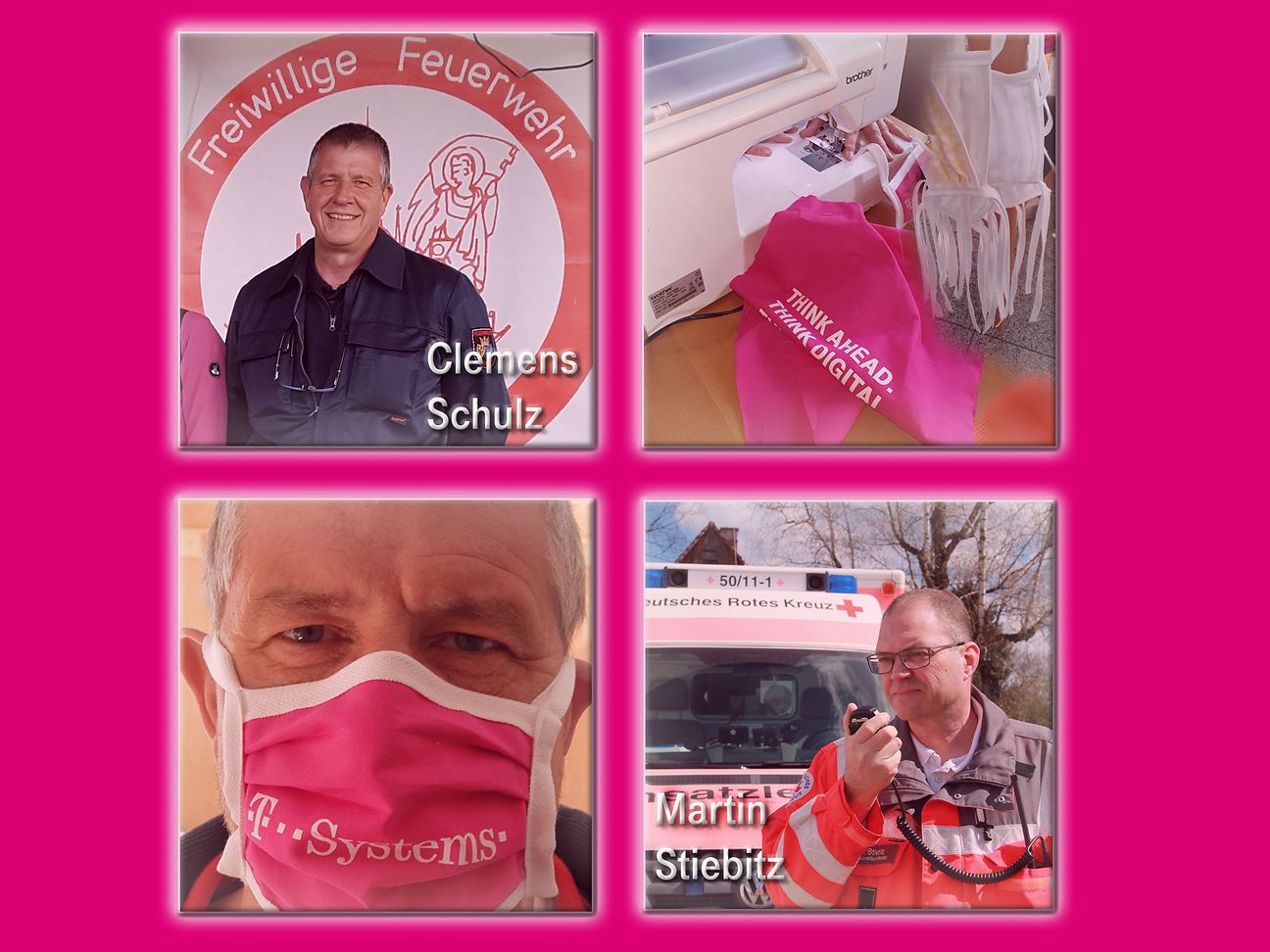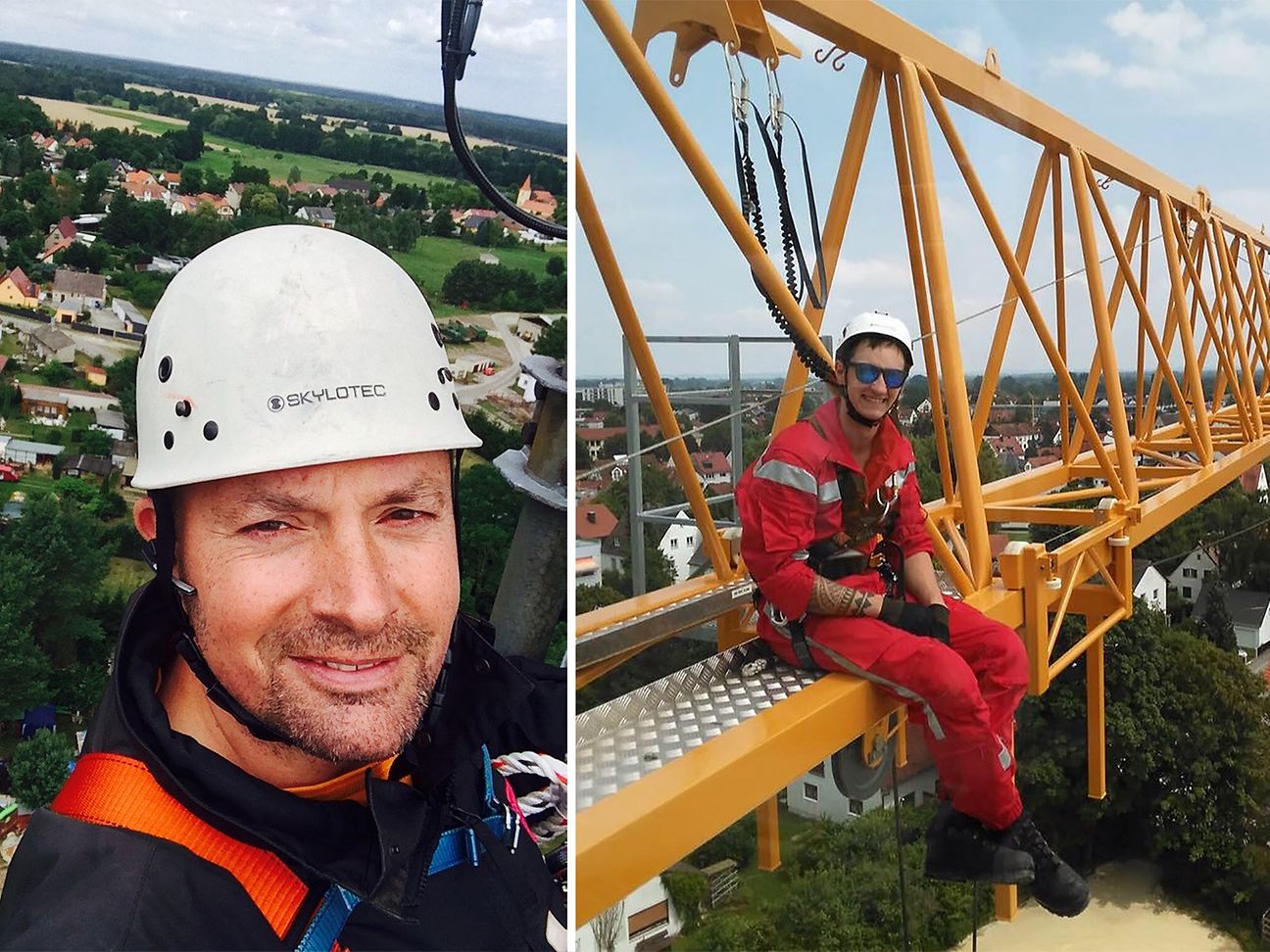

Fighting the coronavirus pandemic – as volunteers
Deutsche Telekom employees in all the company’s divisions and business units are standing together and responding quickly and flexibly to the challenges we face during the coronavirus crisis. For some, the commitment goes even further, because they also work as volunteers. As examples of the many volunteer helpers, in part 7 of our "Magenta Heroes" series, we introduce two colleagues who are helping to fight the pandemic during their free time.
For Martin Stiebitz from PBM in the Technology Branch Office, Southwestern District, work doesn't end at quitting time: he volunteers to help set up field hospitals and fever outpatient clinics, to help make sure large numbers of coronavirus patients can be cared for if the spread gets worse. During his regular working day, Stiebitz is involved with the fiber-optic rollout in the Stuttgart "gigabit region," coordinating build-out efforts with special-purpose associations. To this end, he still makes site visits. Otherwise, he works from home, speaking with special-purpose associations and municipalities about options for fiber-optic rollout with funding or as part of joint ventures. After official hours, Stiebitz volunteers for the DRK (German Red Cross). In his function as district preparedness manager, his responsibilities include setting up field hospitals in the cities of his home district of Rastatt.
"We've already identified suitable gymnasiums and expo centers," explains Stiebitz. "An important selection criterion was the presence of enough sanitary facilities. The lists of materials and operational plans have also been prepared and are ready for deployment." In an emergency, the field hospitals can begin working within 24 hours, to relieve the load on the regular hospitals. "We can then assign DRK personnel to care for patients who don't have acute symptoms and don't need artificial respiration," explains Stiebitz. "This means we could reduce the load on doctors and care staff in the ICUs. Fortunately, we haven't had to take this step yet. Since we're transferring patients to other hospitals, capacities have been sufficient so far. DRK staff are also involved in patient transport and help wherever they can."
Shortage of protective masks
Scene change to the Ruhr region: for Clemens Schulz from SAP Digitalization Solutions at
The Essen fire department is also suffering a shortage of face masks, so they developed instructions for sewing their own, to ensure at least a minimum level of protection. On the basis of these instructions, members of local clubs and organizations are producing face masks. Of course, the sewing instructions have also been published on the internet. Once Schulz found out how people could make their own protective masks, he and his wife Karin developed a plan: Together, they want to help the people in their neighborhood. "When she finishes work, Karin switches on the sewing machine and sews face masks non-stop," says Schulz proudly. He's even sacrificing some of his old T-shirts for the cause, which means there are some magenta-colored models as a "special edition." The Schulz family is also leading by example and wearing the masks outdoors as a sign of consideration for others. Thanks to the distribution campaign launched by Clemens Schulz, others in his neighborhood are now doing the same.
Face masks as a sign of consideration for others
Although face masks do not give their wearers direct protection against coronavirus infection, they can still help slow its spread, to gain time for our healthcare system and for the development of suitable medicines and vaccines. They also send an important signal: "Maintaining social distancing is the order of the day," urges Schulz. "The face masks, in particular, make this visible to everyone. And that's so important, particularly when dealing with members of high-risk groups." The masks can be washed and reused. "By wearing masks, people are generally sending a signal that they're being considerate to others," emphasizes Schulz, referring to the key message by Christian Drosten, one of Germany's leading virologists. In Drosten's opinion, the risk of infection can be lowered if people collectively wear masks in public. Although this opinion is controversial, wearing such masks ensures that medical-quality masks are primarily available to medical staff.
Do-it-yourself face masks
German Red Cross volunteers are also sewing face masks according to the instructions developed in Essen and providing them to rescue and caregiving services. If you want to send your own signal of consideration and make an active contribution to improving hygiene, you can find instructions for sewing your own masks on the website of the city of Essen.
A fascination for volunteering since their youth
Admirable: Both Martin Stiebitz and Clemens Schulz have been volunteers from an early age. Stiebitz has worked with the DRK since he was 12 and has served as preparedness manager for the Rastatt district for 15 years now. Schulz has remained true to Essen's volunteer fire department for more than forty years. Thank you for your tireless commitment!


